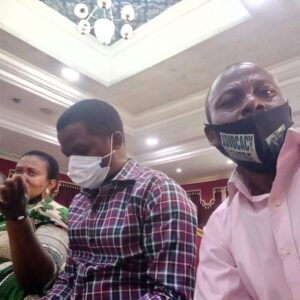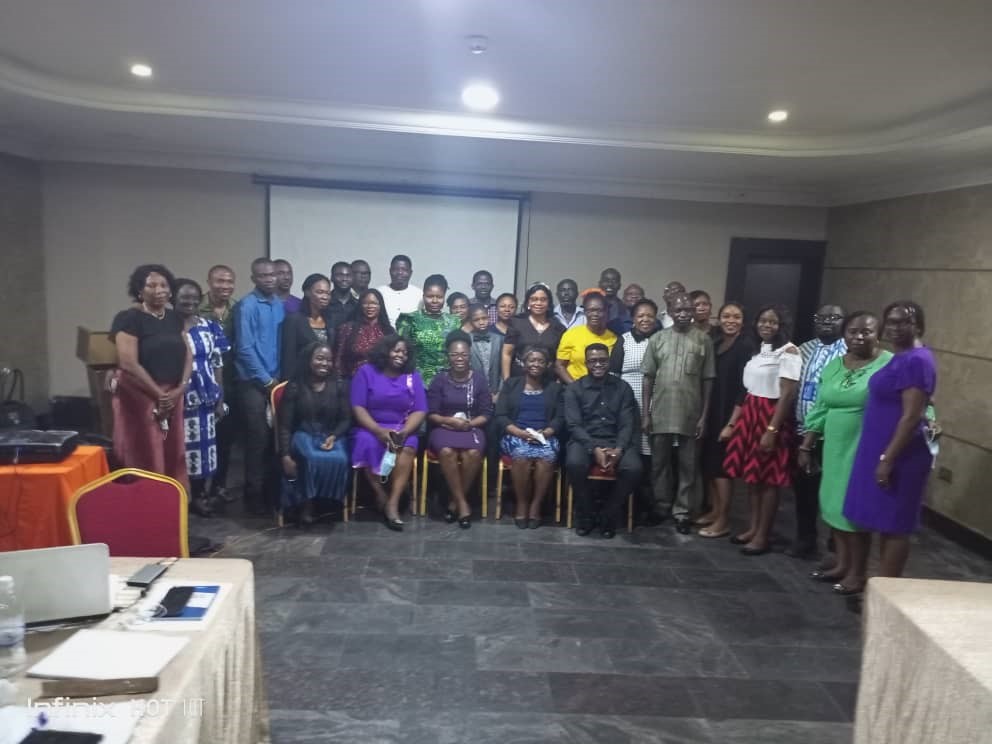
A Cross Section of Participants
Objectives of the Programme
1. To provide a progress update on the AYPHD implementation plan.
2. To validate the State implementation Plan for AYPHD
3. To validate the draft of the AYPHD Implementation Plan and
4. To revise the National Policy on The Health and Development of
Adolescents and Young people in Nigeria (2021 – 2022).
Rivers State Policy Domestication Process: The Rivers State Ministry of Health (RMOH) in collaboration with various MDAs and partners, commenced the process and adaptation in September 2021.
Advocacy and Stakeholder’s Engagements. Advocacy Courtesy Visit. Situational Analysis of Adolescent Health and Development.
The Review Process:
A four (4) day UNICEF funded meeting was conducted on the 19th – 22nd of October 2021.
Development of the Draft Rivers State Implementation Plan (Informal Reviews via Skype).
Where We Are?
Presentation by Dr. Adebayo Emmanuel
Situation Analysis of Adolescents and Young people’s Health and Development in Rivers State.

Session ongoing
Overall, one thing that was very prominent, was the “lack of dissemination of information”, because of indiscriminate documentation.
For the first time in Nigeria, we are beginning to include Adolescent indicators.
Adolescents are properly captured, going forward. We should know that 50% of the population are Adolescents ranging from the age of 10 – 24 years. Increase in non-communicable diseases because children are involved in lesser physical activities. Sexual activity, contraception, unintended pregnancy, and abortion among young people. Early marriage and childbearing, co-habiting is on the increase. AYP HIV Cascade (Number of people living with HIV).
FLHE is the most effective approach in Nigeria now, but implementation has been slow. FLHE has trained teachers/students alike.
Substance Use is very high in Rivers State. It has led to a high increase in admission in clinics (psychological clinics). Accidents and Homicide; high rate of mortality for young boys. Communicable diseases account for 41% – 43% of causes of death in Rivers State.
School Healthcare System Response; if a school health system works very well (youth-friendly facilities/services); young people will become healthy and healthier. Rivers State has a document that strictly addresses Adolescents (Rivers State Strategic Health Development Plan). There is more to Adolescents than Sexual Reproductive Issues.
Some Components of the Implementation Plan:
Sexual and Reproductive Health and Rights
Mental Health, Substance Use, and Addiction
Violence and Injury.
Nutrition and Physical Activity
Non-Communicable Diseases and Disability
Communicable Diseases
Oral Health
How the Implementation Plan is developed?
The vision of the policy, Mission of the policy, Key Implementation Strategies, and Advocacy are key in everything.
Implementation Programmatic/Thematic Areas and Key intervention Activities:
• Policy and legal framework for adolescent health in Rivers State
• Service delivery for AYP in Rivers State
• Basic infrastructure for the health of AYP in Rivers State
• Human resources for the health of AYP in Rivers State
• Family and community systems
• Sexual and reproductive health and rights of adolescents and young people
• Mental Health and Substance abuse
• Nutrition and Physical activity
• Oral health
• Violence and injury
• Mortality and morbidity among adolescents and young people
• Non-communicable diseases and disability
Communicable diseases.
Note: Have State-Level Data, it helps.
Most of the HIV/AIDS Programmes, focus more on normal Adolescents, excluding Adolescents with Special needs.
Breakout Sessions (In Groups):
The groups analyzed the thematic areas of the interventions and made inputs where necessary.
Dr. Adebayo Emmanuel added, “just because something is a good idea, does not mean, it’s sustainable”. Come new Government, comes new policies. Government can’t do everything, hence, the need for partners.
In closing and to do a formal adoption of the validated document; Dr. (Mrs) Smith, thanked everyone present, partners, and CHAI for helping us fill this gap. By 2021 we came together to carve out a roadmap and niche for our Adolescents. There were facilities, vision, and structure for that phase. We are on a cause of defining the personalities of our Adolescents. On behalf, of the Permanent Secretary, Rivers State Ministry of Health, and other Ministries, we adopt the validation of this document. Congratulations!!!





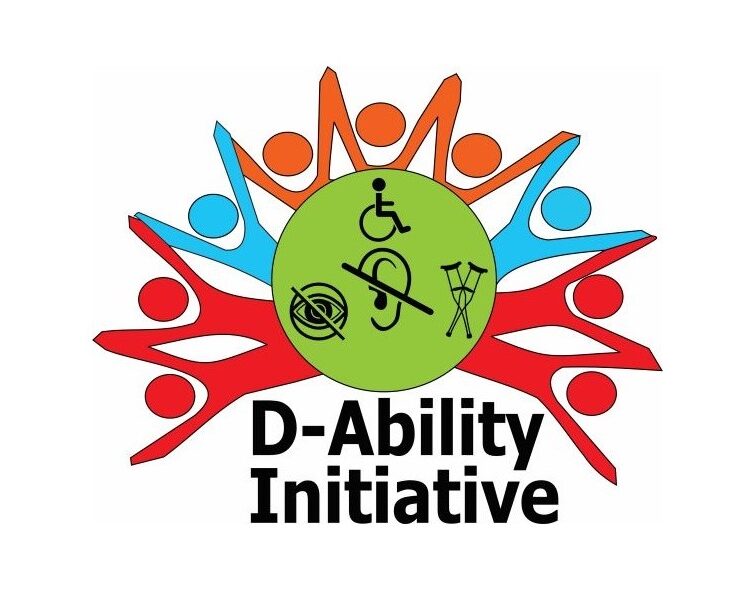






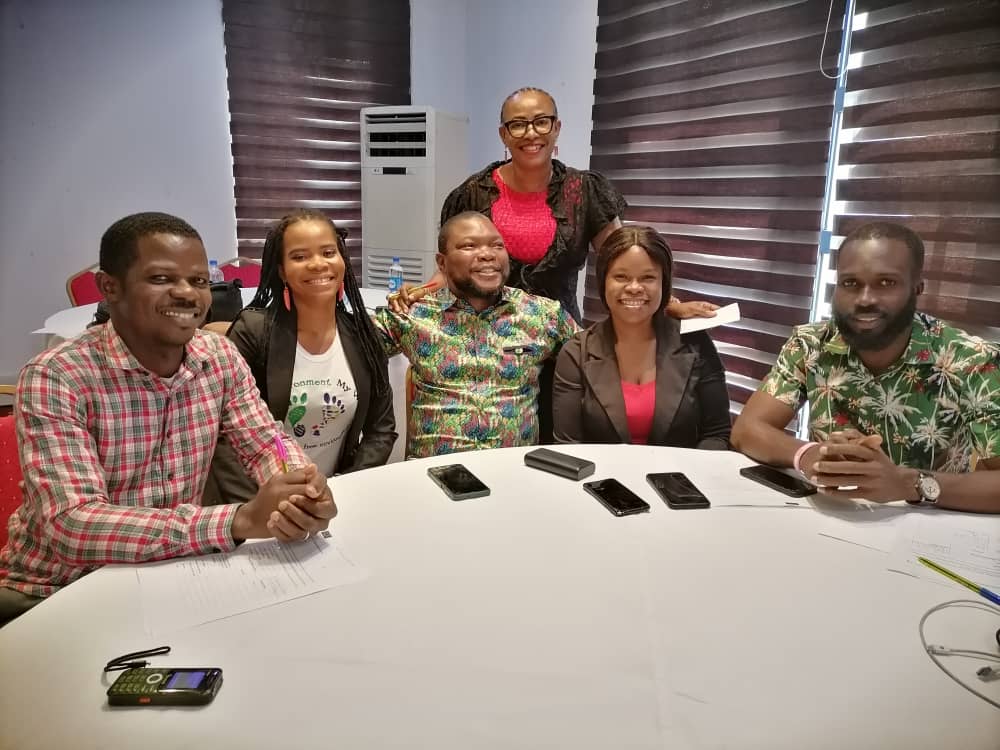

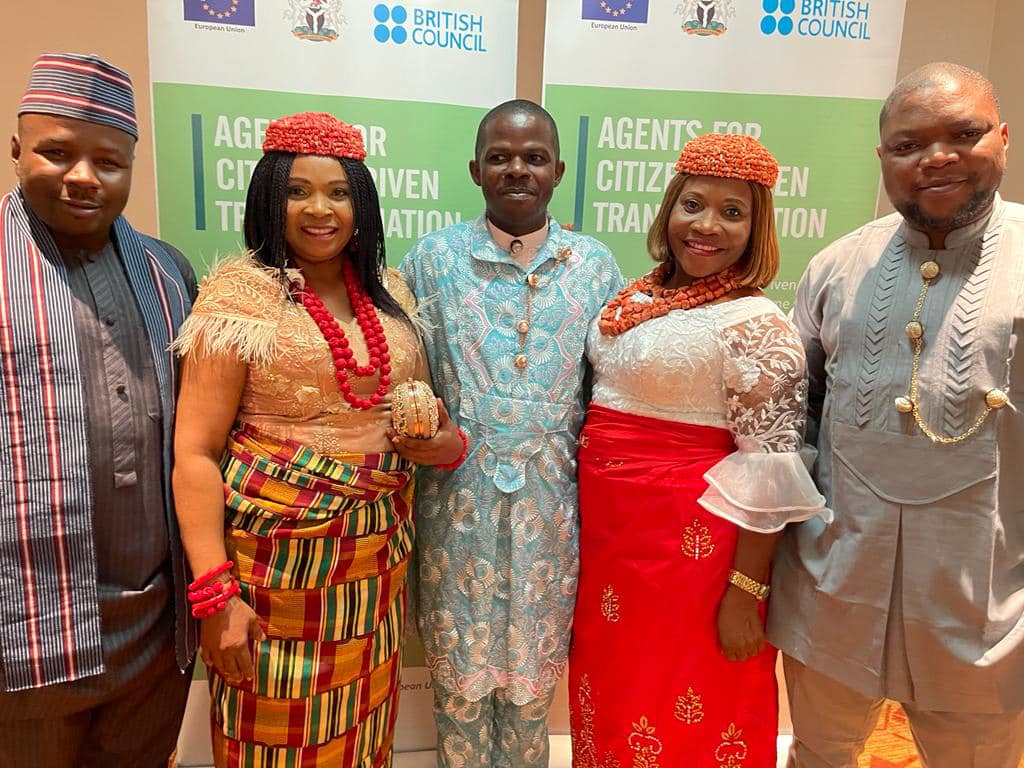
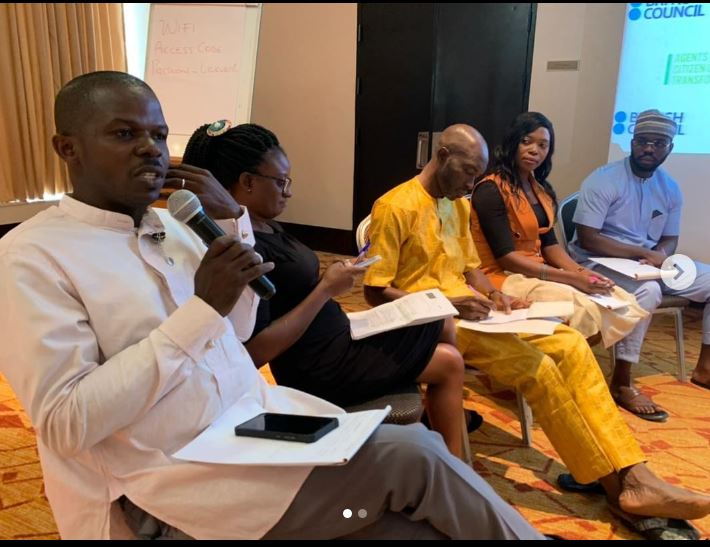




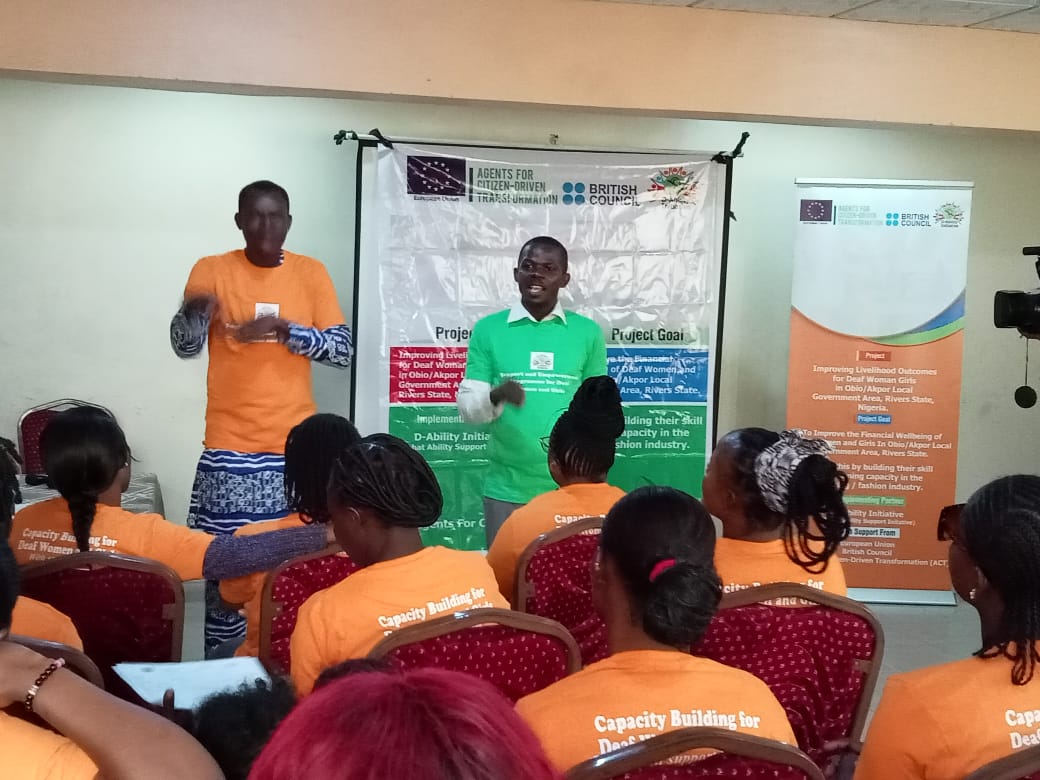









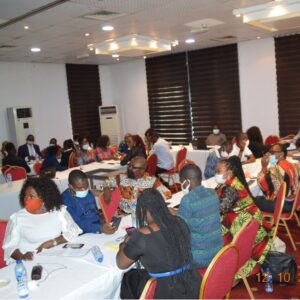 management alongside other CSOs partners in Rivers State. The three days training program held at Novotel Hotel, Port-Harcourt was part of the capacity strengthening programme for selected organizations in Rivers State. The intensive training was facilitated by Mrs. Folake Okonubi who took the participants through several modules as designed for the training. It was interesting, impactful, and all-inclusive as she never shifted focus on Human Resources with the introduction of each module demonstrating expertise in the field.
management alongside other CSOs partners in Rivers State. The three days training program held at Novotel Hotel, Port-Harcourt was part of the capacity strengthening programme for selected organizations in Rivers State. The intensive training was facilitated by Mrs. Folake Okonubi who took the participants through several modules as designed for the training. It was interesting, impactful, and all-inclusive as she never shifted focus on Human Resources with the introduction of each module demonstrating expertise in the field.


 This high-profile feedback workshop was for Executive Directors only. D-Ability Initiative and other selected CSOs together with the officials of the European Union (EU), British Council, and Agents for Citizens-Driving Transformation (ACT) held a feedback session on the EU-ACT series of programmes in Rivers State. The feedback session summarized the months-long organizational capacity development program and heard from participants about the success of programmes so far. It also created an avenue for the Executive Directors to suggest possible ways of making the training better, more productive, interactive, and generally more conducive. This was necessary, as the CSO leaders understand their operational terrain and hence could suggest what would work best. The EU-ACT team from Abuja joined the Rivers State Focal person, Temple Oraeki in the feedback session. The EU-ACT delegation used the opportunity to announce the commencement of phase two of the program which focuses on strengthening the regulatory framework so that civil society organisations can operate in a friendly regulatory environment while staying compliant with the requirements of concerned regulatory bodies such as Economic and Financial Crimes Commission (EFCC), Corporate Affairs Commission (CAC), Federal Inland Revenue Services (FIRS), State Revenue Services, among others. Dr. Nwanyanwu the Executive Director of D-Ability initiative represented the Organization, along with the Executive Directors of other selected EU partner CSOs.
This high-profile feedback workshop was for Executive Directors only. D-Ability Initiative and other selected CSOs together with the officials of the European Union (EU), British Council, and Agents for Citizens-Driving Transformation (ACT) held a feedback session on the EU-ACT series of programmes in Rivers State. The feedback session summarized the months-long organizational capacity development program and heard from participants about the success of programmes so far. It also created an avenue for the Executive Directors to suggest possible ways of making the training better, more productive, interactive, and generally more conducive. This was necessary, as the CSO leaders understand their operational terrain and hence could suggest what would work best. The EU-ACT team from Abuja joined the Rivers State Focal person, Temple Oraeki in the feedback session. The EU-ACT delegation used the opportunity to announce the commencement of phase two of the program which focuses on strengthening the regulatory framework so that civil society organisations can operate in a friendly regulatory environment while staying compliant with the requirements of concerned regulatory bodies such as Economic and Financial Crimes Commission (EFCC), Corporate Affairs Commission (CAC), Federal Inland Revenue Services (FIRS), State Revenue Services, among others. Dr. Nwanyanwu the Executive Director of D-Ability initiative represented the Organization, along with the Executive Directors of other selected EU partner CSOs. The capacity of D-Ability Initiative was strengthened from 2nd to 4th June 2021 on the “Gender and Social Inclusion” training programme by the European Union (EU) and the British council through the Agents for Citizen-Driven Transformation (ACT) programme series for civil society organizations (CSOs) in Rivers State. Gender and Social Inclusion had these objectives:
The capacity of D-Ability Initiative was strengthened from 2nd to 4th June 2021 on the “Gender and Social Inclusion” training programme by the European Union (EU) and the British council through the Agents for Citizen-Driven Transformation (ACT) programme series for civil society organizations (CSOs) in Rivers State. Gender and Social Inclusion had these objectives: